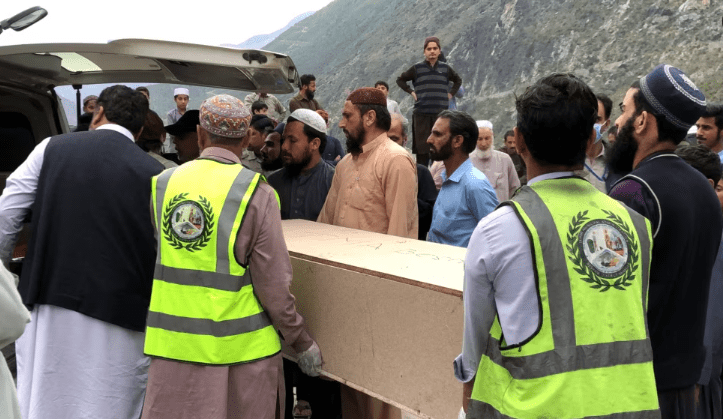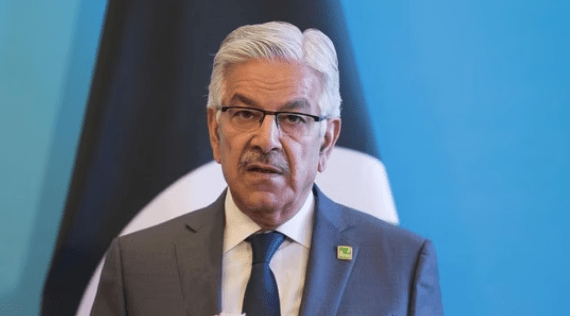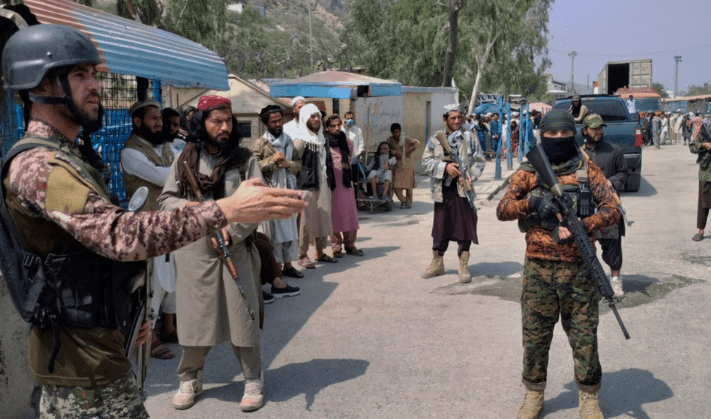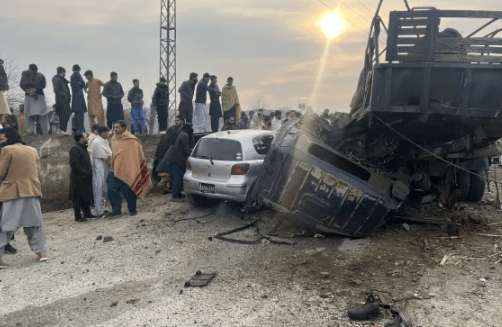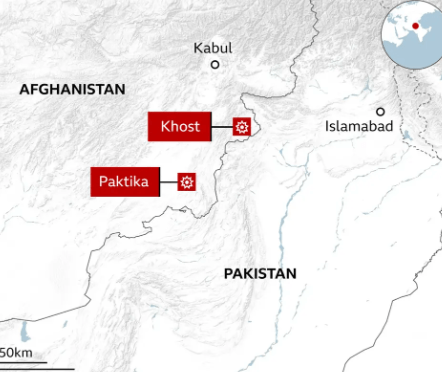The Taliban is a divided house!
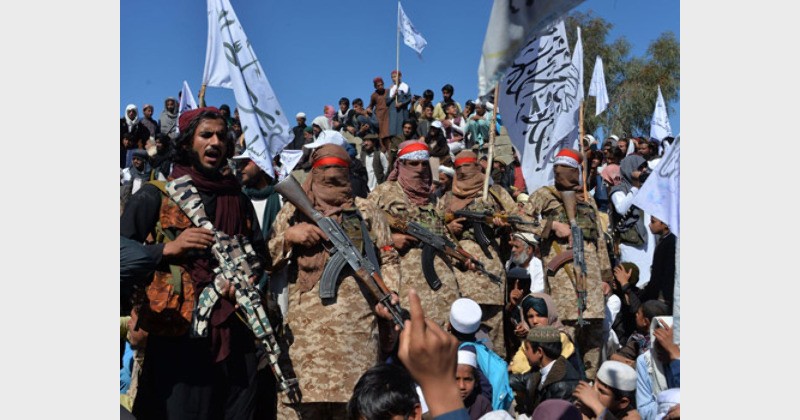
The suicide bomber who carried out the attack on the Al-Fatah Mosque within the compound of the Interior Ministry in Kabul on 5 October 2022 knew very well who his target was; Afghanistan’s Interior Minister Sirajuddin Haqqani, who had inaugurated (14 August 2022) the Al-Fatah Mosque at the cost of 18 million Afghanis at his personal expense. Some reports suggest that Sirajuddin Haqqani had come to pray at the site but left ten minutes prior to the blast. The mosque is said have the capacity to accommodate 800 worshipers at a time. Reports indicate that four people were killed in the suicide blast, carried out by a bomber with a prosthetic leg (BBC News, 5 October 2022). The latest attack has come when fissures within the Taliban are growing and its contestation with the Islamic State of Khorasan Province (ISKP) have only intensified.
“The mosque was used by visitors and sometimes by interior ministry employees,” said interior ministry spokesman Abdul NafiTakor, who confirmed the casualty toll. Italian NGO aid group Emergency, which runs a hospital in Kabul, said on Twitter that it had received 20 patients from the blast, two of whom were dead on arrival. The interior ministry compound is in a secure area next to Kabul international airport. The ruling Taliban have said they have secured the country since taking over in 2021 and although widespread fighting has ended, a series of blasts have hit urban centres in recent months. An explosion at an education centre in West Kabul killed 53 people, most of them young women, according to the United Nations Mission to Afghanistan. While no one has claimed responsibility for the suicide attack, initial reports suggest that the ISKP may have been responsible. The ISKP has been at the forefront in the war against the Taliban and carried out a number of suicide attacks on Taliban leaders in the last few months. The ISKP-Taliban conflict is religious and ideological, with the former following the Saudi model of transnational Salafi or Wahabi Islam, while the Taliban are Sunni Islamists, focused mainly on Afghanistan.
While this intra-Afghanistan conflict is a reality, the other more significant rationale for targeting Sirajuddin Haqqani in the 5 October attack is his pro-Pakistan and anti-education stance. Essentially, what we are witnessing today is a rift within the Taliban, i.e., between those loyal to Mullah Baradar and those with the Haqqani Network. The Taliban, made up predominately of Pashtuns, is divided along ethnic, regional, and tribal lines. There are also differences among the militants over policy. Pertinently, the Taliban is divided on the issue of girls and women’s education. In a wider sense, one faction believes that restrictive decrees will make international recognition and sanctions removal harder to achieve. The other faction believes that compromises will not lead to better ties with the West and the group should instead focus on bolstering its Islamist credentials and consolidate its control.
Earlier in August, a prominent Afghan cleric who supported the Taliban and was in favour of female education was killed. Sheikh Rahimullah Haqqani reportedly died in a suicide bomb blast in Kabul. Taliban sources told Reuters that the religious leader was targeted by a man who detonated explosives hidden in an artificial plastic limb. The Islamic State (IS) group, which has previously targeted the cleric, claimed responsibility for the bombing saying it happened inside his office. Local reports, however, suggest the attack took place at an Islamic seminary in the Afghan capital. Sheikh Haqqani was a supporter of Taliban government and a prominent critic of the jihadist militant group ISKP, an ISIS affiliate that operates in Afghanistan and opposes the Taliban’s rule. He is one of the highest profile figures to have been killed in the country since the Taliban returned to power. Sheikh Haqqani had previously survived two assassination attempts, last in 2020 when ISKP claimed responsibility for an explosion at a religious school in Peshawar that killed at least seven people.
Rahimullah Haqqani was not related to Afghanistan’s Haqqani militant group network. The religious leader had previously issued a fatwa, or religious decree, in support of female education, a contentious issue inside Afghanistan. In an interview with the BBC earlier this year, Sheikh Haqqani had argued that Afghan women and girls should be able to access education: “There is no justification in the sharia [law] to say female education is not allowed. No justification at all. He added: “All the religious books have stated female education is permissible and obligatory, because, for example, if a woman gets sick, in an Islamic environment like Afghanistan or Pakistan, and needs treatment, it’s much better if she’s treated by a female doctor.”
A bombing (18 August 2022) at a mosque in the Afghan capital of Kabul during evening prayers killed at least ten people, including a prominent cleric. The slain cleric was Mullah Amir Mohammad Kabuli, a prominent Hanafi cleric. According to the eyewitness, a resident of the city’s Kher Khanna neighbourhood where the Siddiquiya Mosque was targeted, the explosion was carried out by a suicide bomber. Eyewitnesses said that more than 30 other people were wounded. In July, a top Salafist cleric who had pledged allegiance to the Taliban was mysteriously killed at his home in Kabul. Sardar Wali Saqib was stabbed to death just days after attending a gathering of pro-Taliban clerics. The Taliban blamed ISKP for the killing, although others blamed anti-Salafist figures within the Taliban’s ranks. In November, a little-known ISKP ideologue Abu Mustafa Darveshzadeh was killed. He had written a highly critical book about the Taliban’s approach to implementing Islamic Shari’a law.
Infighting within the Taliban as well as between the Taliban and ISKP could result in renewed civil war in Afghanistan. With the economic and humanitarian situation quite out of control, Afghanistan’s political masters must get their act together. Across the border, Pakistan awaits such a return to instability so that they can control the sinews of power. It is well known that the Haqqani Network is a creation of the Pakistani Inter-Services Intelligence and, they will do the bidding of their masters at the appropriate moment. The Haqqani’s have differed with the top Taliban leadership in the past and it is likely that this could well happen again, only this time violently!

